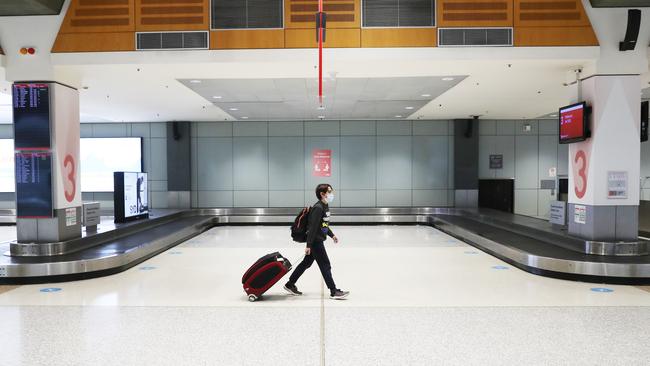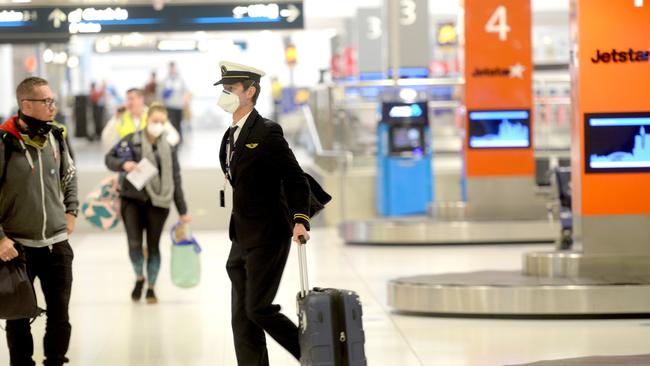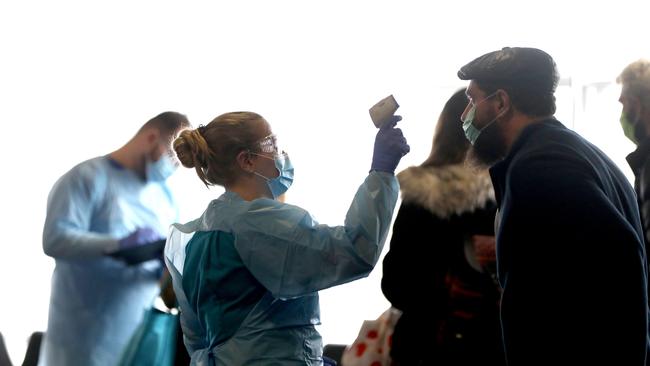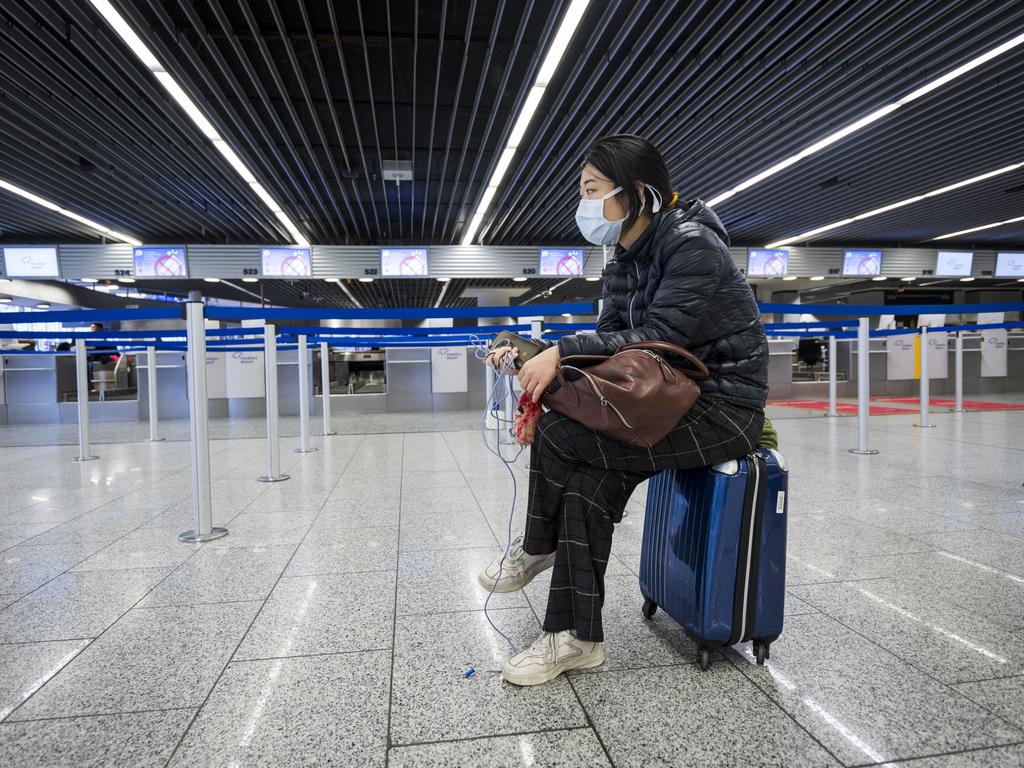Air travel bracing for a hard landing

It was an airport parking business, and it was this family’s life. As well as mum and dad, the two kids had been working in the business as well, so four people thrown out of work, their futures upside down.
Next day, Sydney Airport happened to release its June traffic data: there had been 172,000 passengers through the place in the month, down 94.9 per cent on June 2019. To be honest, it was hard to believe it was that many. Who were all those people, and were they coming or going?
But a 95 per cent drop in customers is not good, and is the sort of black swan no business can plan for, or withstand for long.
Sydney Airport’s share price is down 40 per cent, but it is still valued at $12 billion. It’s being held aloft by an analyst consensus that it will stay cash flow positive this year and bounce back next year.
Whether that turns out to be correct or not (and I don’t think it is), the many small family businesses that hang off it and other airports are stuffed, JobKeeper or not.

Small businesses always drive closer to the edge than big ones, and while JobKeeper has helped many stay afloat, a 95 per cent fall in customers can’t be made up by a wage subsidy of $1500 a fortnight, soon to be $1200. The hole in the cash bucket is too large, the bucket too small, and the future too bleak.
Last Monday, Deloitte Access Economics put out a press release saying that 240,000 small businesses were in danger of failing because they only have enough cash to last a few months.
That was before the extension of JobKeeper announced on Tuesday so it’s fewer now, but that number only referred to the potential failures in hospitality, professional services and transport, and there are a lot of businesses in other sectors that are also in strife.
But let’s focus on air travel. The $12 billion market value of the empty Sydney Airport is based on analyst projections that domestic air travel gets back to mostly normal next year and fully normal the year after.
Those analysts would be marketing their ideas to clients over Microsoft Teams or Zoom, probably from home. Morning meetings would be likewise by video, especially in Melbourne. Sydney Airport’s board and management, like those of just about every company in the land, would be meeting by video link as well.
In fact, everybody in business these days is meeting over video, and getting used to it – organising nice pictures behind them and impressive-looking books and trying not to look dishevelled. And let’s face it, Zoom is OK - even my monthly book club is conducted over Zoom these days.
There’s a different feeling about the experience, it’s true, and it’s never as good as meeting in person.
But is the meeting in person really worth the cost of a flight, plus the time to get to the airport, sit on a plane for an hour or two crammed next to someone who needs to lose weight, travel from the airport to the city at the other end, probably in peak hour traffic, and then do the same thing home that night – that is, if you don’t have to stay overnight in some gruesome hotel with a hard bed and a strange shower that’s impossible to get to the right temperature, followed by watery scrambled eggs from the bain-marie in the morning?
When we eventually emerge from the pandemic, companies are going to be looking for ways to cut costs, and with a lot of staff still working from home and everyone very comfortable with Teams or Zoom, travel budgets are an obvious place to start, and I doubt that staff or clients will mind.
So while the return of international air travel is clearly a long way off and might remain near-zero until there’s an effective, fully-distributed vaccine, and even then stay pretty limited, it seems a fair bet that domestic air travel will never go back to what it was either – especially business travel.
And business travellers are where the margin is. Domestic tourism will probably snap back next year as millions rush to somewhere – anywhere - as soon as they can, having been under house arrest for months, but that’s low margin business.
Maybe the airlines and airport retailers will be able to charge holiday-makers business-class prices at first, but not for long.

So air travel is one business that will never be the same again, a victim of accelerated digital disruption – that is, the acceptance of video conferencing brought forward by the pandemic.
So a lot of planes will stay parked in the Mojave Desert; aircraft manufacturers, Airbus and Boeing will be starved of orders as Mojave Inc becomes their main competitor as fleets gradually rebuild; airlines will be smaller businesses employing fewer people and making smaller profits; airports will have less landing fee income, fewer retailers and emptier carparks and will have to carry a lot less debt. Some may end up run by receivers for a while. Super funds will find their infrastructure portfolio allocations seriously underperform as airports go to zero.
There will be many businesses that change permanently because of the lurch to digital brought about by the coronavirus – shopping malls, offices, anyone in the CBD – but few will change more than air travel.
What is the government’s plan for this industry, as well as others that will be permanently affected?
Is there a plan? Or is the plan simply to cut JobKeeper, try to get some reforms through, give some pep-talk speeches and hope?
That’s not a plan.
* Alan Kohler is Editor in Chief of Eureka Report





A friend saw a woman sobbing quietly on a bench the other night, and asked her what the problem was. It turned out her family business had just gone bust, and she didn’t want her husband to see her crying so she’d gone out for a walk.